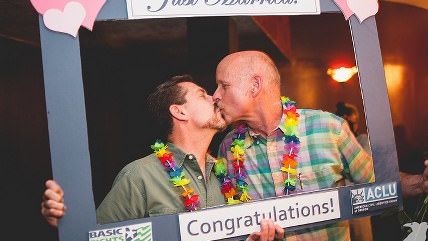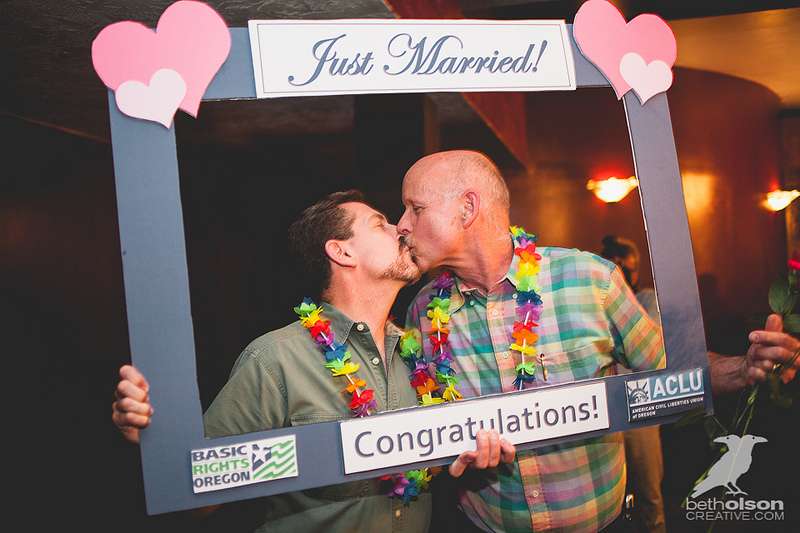Don't Read Too Much Into Supreme Court Refusal to Block Oregon Gay Marriages


A federal judge struck down Oregon's ban on same-sex marriage recognition mid-May. As in California, state officials refused to defend the ban, passed via ballot initiative in 2004. Because the state wasn't willing to defend the law, the National Organization for Marriage (NOM), a group that is against extending marriage to gay folks, has appealed to the courts to try to intervene and defend the initiative. The state's attorney general's office is actively fighting NOM's efforts.
Federal district judges rejected NOM's attempt to block the ruling and defend the initiative, so NOM petitioned the Supreme Court. On Wednesday, the Supreme Court declined, without comment, to intervene in the case and halt gay marriages while NOM argues that they should have standing to defend the law. To be clear: The Supreme Court wasn't asked to determine whether Oregon's ban on gay marriage recognition was constitutional. NOM went to them to try to stay the judge's ruling striking down the ban while the organization attempted to argue it should be allowed to defend it, given that the state was refusing to do so.
The Supreme Court did, though, recently stay a federal judge's ruling that Utah's ban on same-sex marriage was unconstitutional, so what gives? The decisions may appear contradictory, but shouldn't be much of a surprise in the wake of how the Supreme Court ultimately handled California's Proposition 8. Officials of the state of Utah are defending the state's ban. Officials in Oregon are not. In the Proposition 8 ruling, Hollingsworth v. Perry, the Supreme Court determined that being a proponent of a ballot initiative didn't necessarily give somebody standing in federal court to defend the law. Given this ruling, it is unlikely NOM's efforts are going to go anywhere, which NOM seems to sort of concede. Via the Associated Press:
"We knew going in that we had a lot of procedural baggage with our case," said John Eastman, National Organization for Marriage's chairman and lawyer. "We thought it was important to make the effort, but we will continue to press ahead with our appeal, which remains alive, on our right to intervene in this case."
So while the Supreme Court's decision in United States v. Windsor—that's the ruling that the federal government couldn't refuse to recognize gay marriages from states that have legalized them—has been invoked in all these subsequent federal decisions striking down bans, it has nothing to do with the Supreme Court's failure to get involved here. Gay marriage recognition may end up before the Supreme Court again soon, but because of that Proposition 8 ruling, it likely won't be Oregon's law they'll be considering.


Show Comments (26)